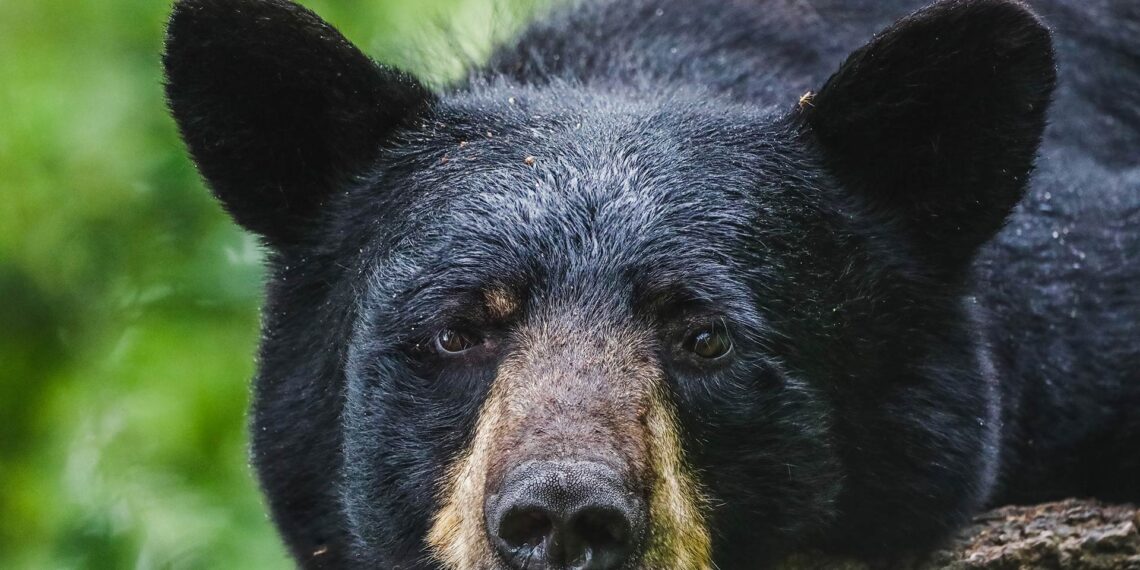[ad_1]

A black bear known as “Pumpkin” has become the center of controversy in Hanson, Massachusetts, as the police department is considering euthanizing the animal following a series of livestock attacks.
Pumpkin, affectionately named so by residents for its fondness for eating gourds, recently breached a resident’s secured barn, killing livestock for the second time.
Hanson Police Chief Michael Miksch expressed concern over how the bear successfully navigated electric fencing to get to the animals.
“The big concern I have with this bear is it entered a structure that had been secured, and it now has a taste for livestock,” Miksch said. “This was also the second time it attacked livestock at this particular home.”
The situation escalated due to unintentional and intentional feeding by residents, who left garbage out for Pumpkin to scavenge.
“Bears are very resourceful when they find a food source. Bears will often move around in the same area that they find a regular food sources. Unfortunately, the bear is becoming too comfortable in the area and has found too many food sources,” police wrote on Facebook.
According to the post, dated November 2, officers tracked Pumpkin for two hours, but were unable to safely shoot the bear as it was in a heavily populated residential area.
Police stated that they were unable to relocate the bear at the time.
Following backlash from the community and efforts to protect Pumpkin the bear, police have backed off for now.
The police department responded by clarifying that they have not actively sought the bear to be euthanized but would consider it if the bear poses a more serious threat.
Residents responded to the initial news with anger, criticizing the Hanson Police Department’s approach on social media platforms, with one commenter urging them to “do better” and learn to coexist with bears.
“Shame on whoever decided this,” another wrote.
In response to the outcry, MassWildlife has scheduled a virtual presentation on November 15 to educate residents on black bear biology, population management and effective coexistence strategies.
Hanson police also called for responsible behavior modification, including removing bird feeders, securing trash and feeding pets indoors.
“We again, ask that you take some time to learn about living with bears as they have now taken up residence in our area. We do not want this to become a recurring problem each year,” the department wrote.
The controversy even prompted local resident Rachel Baird to launch a Change.org petition titled “Prevent the Unnecessary Killing of Pumpkin the Bear by Hanson Police.”
The petition, which has nearly 630 signatures as of this writing, advocates for exploring alternatives to euthanasia, such as relocation or enhancing barriers between wild animals and livestock.
“This is not just about one bear; this is about how we treat wildlife in general. Animals acting naturally within their shrinking habitats should not be met with extermination as a solution,” Baird wrote in the petition.
MassWildlife, however, insisted that relocation is not a viable option for bears exhibiting problem behavior, as it merely transfers the issue to another community. The agency stated that bears accustomed to raiding chicken coops or attacking livestock are unlikely to cease such behavior if moved elsewhere.
While Pumpkin is not the only bear reported in the South Shore, authorities stated that black bears are generally not aggressive toward humans.
Instances of physical contact between black bears and people in Massachusetts have been rare, with only five reported cases resulting in minor injuries over the last decade. Hanson, while not traditionally within the established range for Massachusetts bears, is experiencing increased bear sightings.
MassWildlife attributes this trend to the expansion of the black bear population toward the east. The population has grown to approximately 4,500 statewide since the 1970s.
[ad_2]




